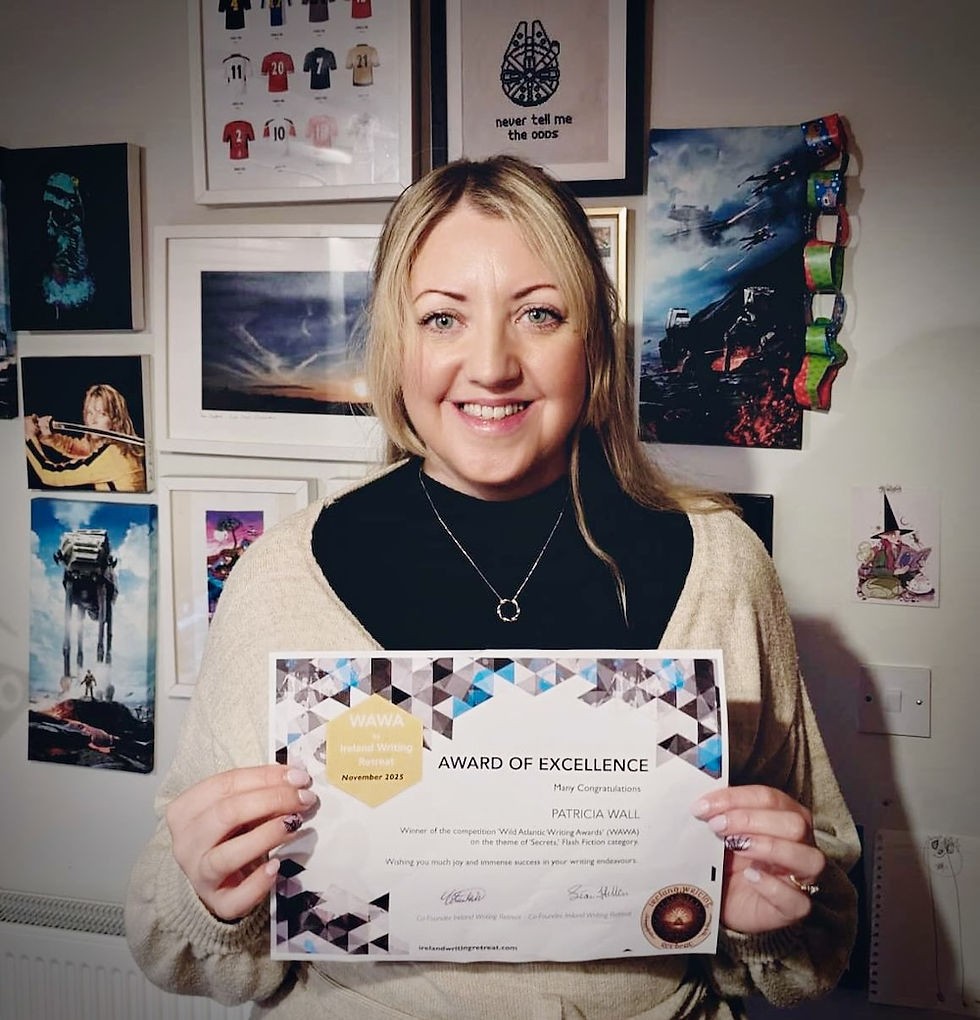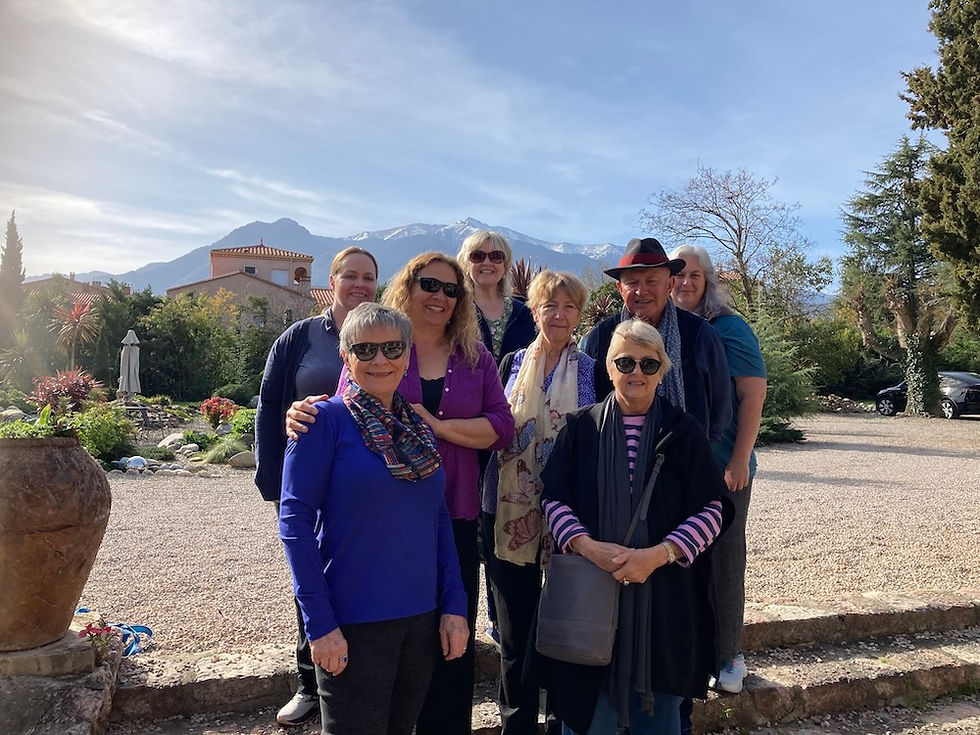Leading international playwright joins team of writing trainers at autumn retreat
- columbiahillen

- Sep 3, 2017
- 4 min read
Organizers of ‘Ireland Writing Retreat’ are delighted and honored that one of Ireland’s leading playwrights will be a special guest at this autumn’s week-long focus on creative writing on the inspiring ‘Wild Atlantic Way’ in Donegal, northwest Ireland.
Don’t miss the chance to listen and learn for published writers in many genres about the basics of creative writing at this year’s retreat.
Any person who spends 16 years incarcerated in prison and 70 days on a hunger strike for a political and social ideal they passionately believe in has to be admired.
Even more so when that same person later achieves a Doctorate in sociology (with a thesis creatively entitled ‘Unrepentant Fenian Bastards’) and becomes a well-respected playwright, author, screen-writer and co-founder of a national film festival.
That rare caliber of person is Antrim-born, Dundalk-based Laurence McKeown whose latest play, directed by Paula McFetridge of Belfast-based Kabosh, ‘Green & Blue’ has gone on national tour, including a performance as part of the Earagail Arts Festival at the Amharclann Ghaoth Dobhair and at the John Hewitt International Summer School in Armagh.
The play focuses on two policemen – one based in Northern Ireland and the other in the Republic of Ireland – who’s role is to patrol the sensitive border between the two countries during the height of the decades-long civil disturbances colloquially termed, ‘The Troubles.’ The play deals with many facets of life, including self-understanding and individuality.
During a comprehensive interview with author and international journalist, Sean Hillen, Laurence McKeown said “It’s a simple question really: why do we keep doing what we are doing, should we all not be exploring options in our lives? This question even came up in prison. We all went through a process of ‘unlearning,’ unlearning what we’d been brought up to believe by various authorities such as the state and the church. Initially in prison, republican political structures were rigid, conservative and Catholic. Then we started questioning why it should be so, and it started to change.” He added that ‘Pedagogy of the Oppressed,’ written by Brazilian educator Paulo Freire, had a profound effect on him.
Adding an interesting dimension to the evening, McKeown and McFetridge took part in a post-performance talk hosted by Sonia Nic Giolla Easbuig, answering questions from the audience, with McKeown describing how he had met many people from the Protestant community, some of whom were former enemies. Often in such discussions, he said, there was initially “heated debate, even argument” but eventually greater mutual understanding was achieved.

Speaking with Hillen for two hours at Teac Jack’s in Glassagh in the Donegal Gaeltacht, Laurence spoke matter-of-factly about his own experiences after joining the Irish Republican Army at the age of 17 and ambushing a British Land Rover with a rifle. Within three years, he was jailed for life for IRA membership and the ambush and sent to the Maze Prison where later he was in charge of republican-prisoner education.
“A fellow prisoner, John Pickering, obtained a stapled book on writing and we later started a magazine called ‘An Glór Gafa/The Captive Voice.’ That was really the start of my interest in learning the craft,” he recalled. “The magazine was full of satire, short stories, poetry and artistic drawings. I wrote a story entitled ‘VIP’ on fellow hunger striker, Francis Hughes, for the first edition and ‘The Visit’ for the second.”
Since then, McKeown’s achievements have been impressive. Aside from co-founding the Belfast Film Festival, he has co-written two books about Irish Republican prisoners in the Maze, ‘Nor Meekly Serve My Time: The H-Block Struggle 1976–1981’ (with Brian Campbell and Felim O’Hagan) in 1994 and ‘Out Of Time: Irish Republican Prisoners, Long Kesh, 1972–2000’ in 2001. With Campbell, he also wrote a film about the 1981 hunger strike entitled ‘H3’ and two plays, ‘The Laughter of Our Children’ in 2001 and ‘A Cold House’ in 2003, as well as his own play, ‘The Official Version’ in 2006.
Plays with Kabosh have included ‘Johanna Monahan,’ ‘It’s In The Streets,’ ‘Two Roads West’ as well as ‘Those You Pass On The Street,’ which producer, McFetridge, said was performed before 3,000 people at an open-air venue at the Genocide Memorial in Rwanda as part of the Ubumuntu Arts Festival in Kigali, and at the National Arts Festival in South Africa. McKeown also works as a development officer for Coiste na n-Iarchimí, an umbrella organization of republican ex-prisoner groups.
Asked whether he thinks a South African-style ‘Truth Commission’ would help heal the divisions in northern Ireland, McKeown said while there are some aspects of that commission that are controversial, something like it would probably help. “I doubt very much, however, if the British government would agree to it. They have too many skeletons in cupboards to hide.”
On his 70 days without food in the Maze Prison on 1981 hunger strike seeking political status which forced him into a coma, he says simply, “It wasn’t bravery, it was necessity.”








Comments